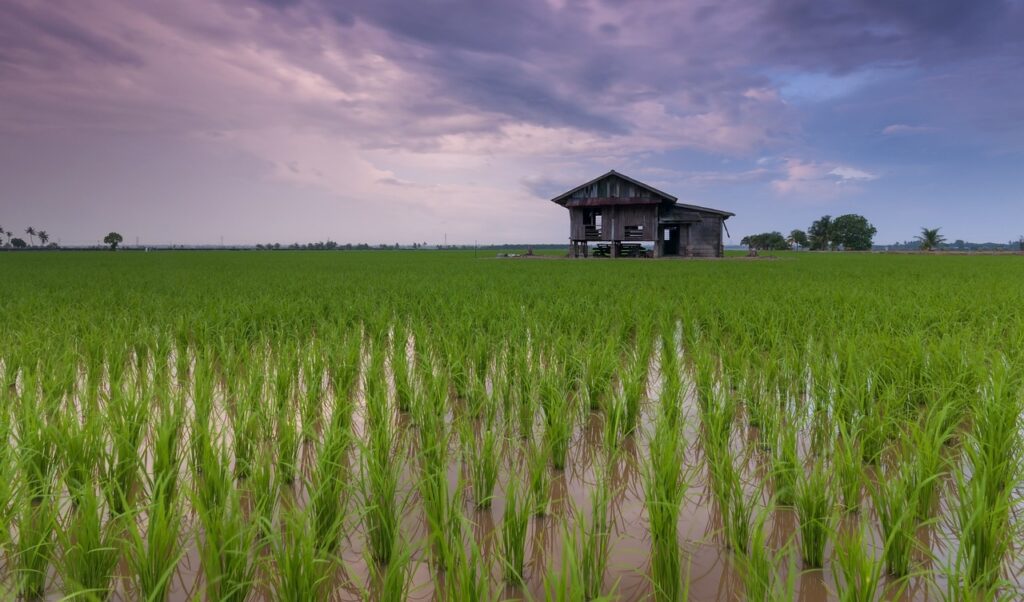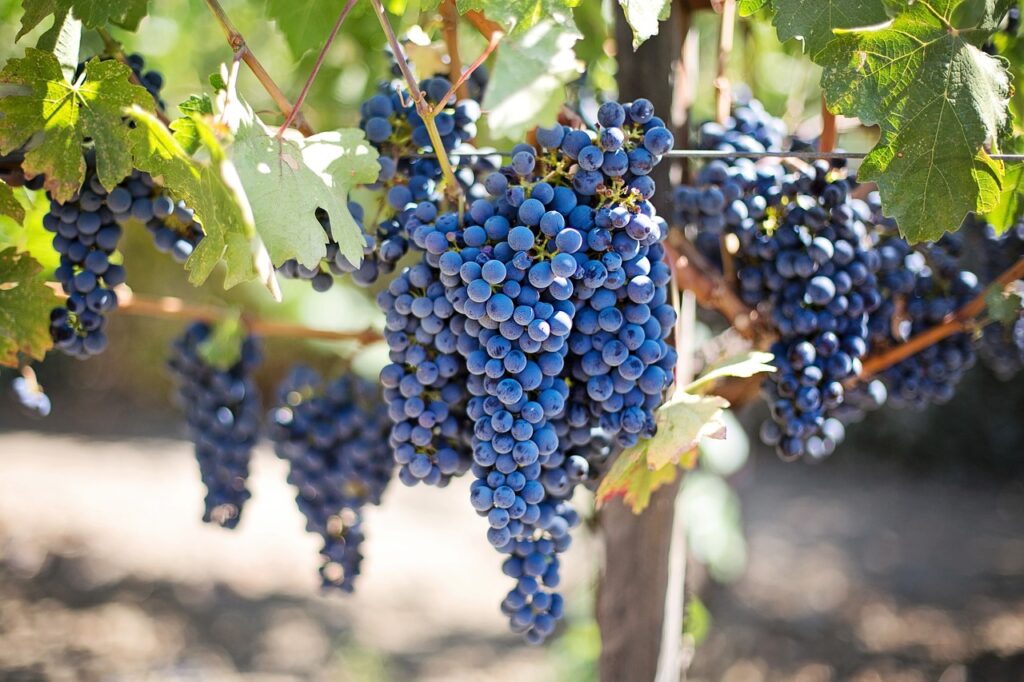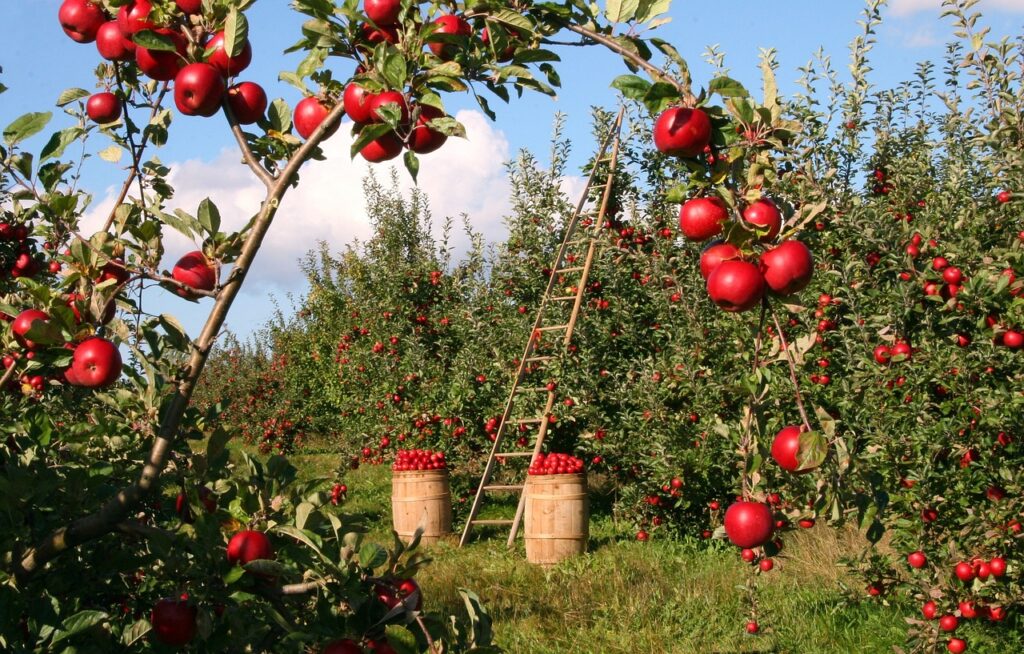
Highlights
- Sustainable food production system delivers food security and nutrition while preserving economic, social, and environmental value.
- Sustainable food system delivers food security and nutrition while preserving economic, social, and environmental value.
- Sustainable food production focuses on three dimensions: economic, social and environmental.
- Sustainable agriculture focuses on long-term environmental, economic, and social sustainability.
- Sustainable farming techniques: Organic farming, agroforestry, conservation agriculture, permaculture, integrated pest management, precision farming, crop rotation, water-saving techniques, livestock rotation, community-supported agriculture, biomass and energy management, soil conservation measures.
- Role of technology in transforming agriculture: Precision agriculture, automated machinery, digital platforms, and mobile applications.
- The future of sustainable food production lies in regenerative agriculture, climate-smart farming, vertical farming, plant-based proteins, digital agriculture, circular food systems, consumer demand, and collaboration.
In definition a sustainable food system (SFS) is a food system that delivers food security and nutrition for all in such a way that the economic, social and environmental bases to generate food security and nutrition for future generations are not compromised.
In order to be sustainable, the development of the food system needs to generate positive value along three dimensions simultaneously to assure sustainable food production: economic, social and environmental.
- Economic dimension, a food system is considered sustainable if the activities conducted by each food system actor or support service provider are commercially or fiscally viable. The activities should generate benefits, or economic value-added, for all categories of stakeholders: wages for workers, taxes for governments, profits for enterprises, and food supply improvements for consumers.
- Social dimension, a food system is considered sustainable when there is equity in the distribution of the economic value, taking into account vulnerable groups categorized by gender, age and race. Most importantly, food system activities need to contribute to the advancement of important socio-cultural outcomes, such as nutrition and health, traditions, labor conditions, and animal welfare.
- Environmental dimension, sustainability is determined by ensuring that the impacts of food system activities on the surrounding natural environment are neutral or positive, taking into consideration biodiversity, water, soil, animal and plant health, the carbon footprint, the water footprint, food loss and waste, and toxicity

The importance of sustainable agriculture
Sustainable agriculture is of paramount importance for several reasons. It is an approach to food production that focuses on long-term environmental, economic, and social sustainability. Here are some key reasons why sustainable agriculture is crucial:
- Environmental Conservation: Sustainable agriculture practices promote the preservation and protection of natural resources. It aims to minimize the negative impact on ecosystems, soil fertility, water quality, and biodiversity. By implementing techniques such as organic farming, agroforestry, crop rotation, and integrated pest management, sustainable agriculture helps maintain soil health, conserve water, reduce pollution, and preserve habitats.
- Food Security and Nutrition: Sustainable agriculture plays a vital role in ensuring food security for present and future generations. By adopting sustainable practices, farmers can improve productivity while safeguarding the environment. Sustainable agricultural methods enhance soil fertility, increase crop yields, and reduce reliance on synthetic fertilizers and pesticides. This approach supports the production of diverse and nutritious food, thus contributing to improved nutrition and addressing hunger and malnutrition challenges.
- Climate Change Mitigation and Adaptation: Agriculture is both affected by and contributes to climate change. Sustainable agriculture practices, such as conservation tillage, precision farming, and agroforestry, can help mitigate greenhouse gas emissions. These practices reduce energy use, enhance carbon sequestration in soils and vegetation, and promote resilience to climate change impacts. By adopting climate-smart agricultural techniques, farmers can adapt to changing climatic conditions, such as droughts or floods, and ensure the continuity of food production.
- Economic Viability and Rural Development: Sustainable agriculture promotes economic viability for farmers and rural communities. By diversifying their production systems, adopting efficient resource management practices, and accessing markets that value sustainability, farmers can enhance their income and livelihoods. Sustainable agriculture also encourages local and small-scale farming, fostering rural employment opportunities and supporting vibrant and resilient rural communities.
Food safety knowledge is for all!

Every consumer deserves to have high quality and safe food. …Read more!

- Water Conservation: Sustainable agriculture emphasizes water conservation and responsible water management. By utilizing water-saving irrigation methods, implementing water-efficient technologies, and promoting watershed management practices, sustainable agriculture reduces water waste and enhances water availability for both agriculture and other sectors. This approach is crucial in regions facing water scarcity or where agriculture puts pressure on water resources.
- Preservation of Genetic Diversity: Sustainable agriculture promotes the preservation and utilization of genetic diversity in crops and livestock. By maintaining diverse seed varieties and animal breeds, farmers contribute to the resilience and adaptability of agricultural systems. Preserving genetic diversity ensures a wider pool of genetic resources available for breeding, disease resistance, and the development of new crop varieties to tackle emerging challenges.
- Social Equity and Well-being: Sustainable agriculture supports social equity by promoting fair labor practices, equitable access to resources, and empowering local communities. It encourages participatory approaches, knowledge sharing, and capacity building among farmers, fostering collaboration and community engagement. Sustainable agriculture also values cultural heritage, traditional knowledge, and local food systems, contributing to the well-being and cultural identity of communities.
Challenges in traditional food production methods compared to sustainable food production
Traditional food production methods often face several challenges when compared to sustainable food production.
- Environmental Impact: Traditional food production methods can have significant negative environmental impacts. They often rely heavily on synthetic fertilizers, pesticides, and herbicides, which can contaminate soil, water bodies, and harm non-target organisms. Traditional methods also involve extensive tilling, which can lead to soil erosion, loss of soil fertility, and reduced water holding capacity. In contrast, sustainable food production methods focus on minimizing chemical inputs, promoting organic farming practices, and implementing conservation techniques to protect soil, water, and biodiversity.
- Water Management: Traditional methods of irrigation often involve inefficient practices, such as flood irrigation, which can result in water wastage and contribute to water scarcity. Sustainable food production methods employ water-saving techniques like drip irrigation, precision farming, and rainwater harvesting. These methods optimize water use, reduce water loss through evaporation and runoff, and contribute to improved water conservation and availability.
- Biodiversity and Ecosystem Conservation: Traditional food production systems often focus on a limited range of high-yield crop varieties and livestock breeds, leading to reduced genetic diversity. This concentration makes agricultural systems more vulnerable to pests, diseases, and environmental changes. In contrast, sustainable food production methods prioritize biodiversity conservation. They encourage the use of diverse crop varieties, heritage breeds, and the preservation of natural habitats on farms. This approach promotes ecosystem resilience, enhances natural pest control, and protects endangered species.
- Climate Change Resilience: Traditional food production methods are often more susceptible to the impacts of climate change. Monocultures, reliance on synthetic inputs, and unsustainable land management practices increase vulnerability to extreme weather events, such as droughts, floods, and heatwaves. Sustainable food production methods, on the other hand, promote climate change resilience. Practices like agroforestry, conservation agriculture, and diversification of crops and livestock help adapt to changing climatic conditions, reduce greenhouse gas emissions, and enhance ecosystem stability.
- Health and Food Safety: Traditional food production methods may involve the use of synthetic chemicals, hormones, and antibiotics, which can have adverse effects on human health and contribute to antibiotic resistance. Sustainable food production methods prioritize the use of natural and organic inputs, reducing exposure to harmful substances. They also emphasize food safety measures, such as proper handling, storage, and traceability, ensuring the production of safe and nutritious food for consumers.
Sustainable farming techniques and practices
There are numerous sustainable farming techniques and practices that contribute to environmentally friendly and socially responsible agriculture. Some of the techniques are listed below.
- Organic Farming: This method avoids the use of synthetic fertilizers, pesticides, and genetically modified organisms (GMOs). Instead, it relies on natural inputs like compost, cover crops, and biological pest control to enhance soil fertility and manage pests and diseases.
- Agroforestry: Agroforestry involves integrating trees or shrubs with crops or livestock on the same piece of land. This practice promotes biodiversity, improves soil fertility, conserves water, and provides additional income streams from tree products.
- Conservation Agriculture: Conservation agriculture involves minimizing soil disturbance through practices like no-till or reduced tillage. It helps maintain soil structure, reduce erosion, and preserve soil moisture, while also promoting the use of cover crops and crop rotation.
- Permaculture: Permaculture is a design system that aims to create sustainable and self-sufficient agricultural ecosystems. It emphasizes the interconnection of plants, animals, and natural systems, and incorporates principles such as diversity, resource efficiency, and closed-loop nutrient cycles.
- Integrated Pest Management (IPM): IPM is an approach that focuses on preventing and managing pests using ecological and least-toxic methods. It includes techniques like biological control (using natural predators), crop rotation, habitat manipulation, and the targeted use of pesticides only when necessary.
- Precision Farming: Precision farming utilizes technologies like GPS, sensors, and data analytics to optimize the use of inputs such as fertilizers, water, and pesticides. By providing site-specific information, farmers can tailor their practices and reduce waste, enhancing resource efficiency.
- Crop Rotation: Crop rotation involves the sequential planting of different crops in the same field over time. This practice helps control pests and diseases, improve soil fertility, reduce soil erosion, and break cycles of nutrient depletion.
- Water-saving Techniques: Various water-saving techniques can be employed, such as drip irrigation, micro-irrigation, rainwater harvesting, and mulching. These methods minimize water loss, improve water use efficiency, and reduce the strain on water resources.
- Livestock Rotation and Managed Grazing: Rotational grazing systems allow livestock to graze in specific areas for a limited period, followed by rest and regrowth periods. This practice promotes healthy pasture growth, reduces overgrazing, and improves soil fertility while minimizing erosion.
- Community Supported Agriculture (CSA): CSA programs involve a direct partnership between farmers and consumers. Consumers pre-purchase a share of the farm’s produce, providing financial support to farmers and creating a sustainable market. It promotes transparency, strengthens local food systems, and encourages a connection between consumers and producers.
- Biomass and Energy Management: Utilizing biomass and renewable energy sources for farm operations can reduce dependence on fossil fuels. Practices like bioenergy production, biogas generation from agricultural waste, and the use of renewable energy technologies help mitigate greenhouse gas emissions.
- Soil Conservation Measures: Implementing erosion control measures, such as contour plowing, terracing, and buffer strips, can prevent soil erosion and protect water bodies from sedimentation. Soil conservation practices preserve soil fertility, reduce nutrient runoff, and maintain ecosystem integrity.

Examples of successful sustainable food production initiatives
- Fair Trade Certification: Fair Trade certification ensures that farmers and workers receive fair prices and fair labor conditions for their products. It promotes sustainable farming practices, community development, and environmental stewardship. Fair Trade initiatives cover a wide range of products, including coffee, cocoa, bananas, tea, and more.
- Farm to School Programs: Farm to School programs connect schools with local farmers, enabling students to have access to fresh, locally produced food in their meals. These programs support local agriculture, reduce food miles, and educate students about healthy eating and sustainable food choices. Farm to School initiatives have been successful in various countries, including the United States, Canada, and France.
- The Forest Garden Approach: The Forest Garden Approach, pioneered by organizations like Trees for the Future, promotes agroforestry systems that combine trees, crops, and livestock. These systems enhance biodiversity, improve soil fertility, and provide farmers with a sustainable source of food, income, and fuelwood. This approach has been successfully implemented in several countries in Africa, Asia, and Latin America.
- Community-Supported Agriculture (CSA): CSA programs establish direct partnerships between farmers and consumers. Consumers pre-purchase a share of the farm’s produce, providing financial support to farmers and creating a sustainable market. CSA initiatives strengthen local food systems, promote transparency, and foster a sense of community and connection between consumers and producers.
- Organic Agriculture Movements: Organic agriculture movements have gained momentum globally. This has promoted sustainable farming practices that avoid synthetic inputs and focus on soil health, biodiversity, and ecological balance. Various certification programs and initiatives, such as the United States Department of Agriculture (USDA) Organic certification, have contributed to the growth of organic farming worldwide.
- Zero Hunger Initiative: The United Nations’ Zero Hunger initiative aims to end hunger, achieve food security, and promote sustainable agriculture worldwide. It focuses on supporting small-scale farmers, improving agricultural productivity, enhancing market access, and promoting sustainable food systems to ensure everyone has access to nutritious and sufficient food.
The role of technology in transforming agriculture
Technology plays a pivotal role in transforming agriculture by revolutionizing various aspects of the industry. Advancements in agricultural technology have led to increased productivity, improved efficiency, and more sustainable practices.
Precision agriculture, for example, utilizes technologies like GPS, sensors, drones, and data analytics to optimize resource allocation, enhance crop monitoring, and improve decision-making. This enables farmers to precisely apply fertilizers, water, and other inputs, reducing waste and environmental impact.
Additionally, automated machinery and robotics streamline labor-intensive tasks, reducing the physical burden on farmers and increasing efficiency. Furthermore, digital platforms and mobile applications provide farmers with real-time market information, weather forecasts, and access to financial services, empowering them to make informed decisions and strengthen their economic viability.
Overall, technology in agriculture has the potential to boost productivity, enhance sustainability, and contribute to the development of a more resilient and efficient food system.
The future of sustainable food production
The future of sustainable food production holds promises as we face challenges like population growth and climate change. Key aspects include regenerative agriculture, climate-smart farming, vertical farming, plant-based proteins, digital agriculture, circular food systems, consumer demand, and collaboration.
These approaches focus on building soil health, adapting to climate change, utilizing innovative technologies, minimizing waste, and meeting consumer preferences for sustainable food. By embracing these advancements, we can create a resilient and efficient food system that nourishes people and protects the environment.
How consumers can support sustainable food production
Consumers play a crucial role in supporting sustainable food production through their purchasing decisions and lifestyle choices. Here are some ways consumers can contribute to sustainable food production:
- Choose Sustainable Certifications: Look for eco-labels and certifications such as organic, fair trade, Rainforest Alliance, and Marine Stewardship Council (MSC) when shopping for food products. These certifications ensure that the products meet specific sustainability standards and support environmentally and socially responsible practices.
- Buy Local and Seasonal: choosing locally produced and seasonal foods whenever possible. Locally sourced products reduce the carbon footprint associated with transportation and support local farmers and economies. Seasonal produce is often more sustainable as it requires fewer resources for growth and can help diversify your diet.
- Reduce Food Waste: Minimize food waste by planning meals, storing food properly, and repurposing leftovers. Wasted food contributes to greenhouse gas emissions and inefficient resource use. Being mindful of portion sizes and utilizing food scraps creatively can also help reduce waste.
- Support Sustainable Seafood: Choose sustainably sourced seafood by referring to seafood guides and certifications like the MSC. This helps protect marine ecosystems and supports fisheries that follow responsible fishing practices.
- Embrace Plant-Based Options: Incorporate more plant-based meals into your diet. Plant-based foods generally have a lower environmental impact compared to animal-based products. Explore vegetarian and vegan recipes, and experiment with plant-based alternatives for meat, dairy, and eggs.
- Minimize Single-Use Packaging: Reduce your consumption of single-use packaging by opting for products with minimal packaging or choosing reusable alternatives. Bring your own shopping bags, produce bags, and containers when shopping.
- Educate Yourself: Stay informed about sustainability issues in the food system. Understand the environmental and social impacts of different food production methods and make conscious choices based on that knowledge. Support initiatives and organizations that promote sustainable agriculture and advocate for a more sustainable food system.
- Engage in Gardening or Urban Agriculture: Grow your own food through gardening or participate in community gardens. It promotes self-sufficiency, reduces reliance on commercial agriculture, and connects you to the process of food production.
- Advocate for Change: Use your voice to advocate for sustainable food production and policies that support it. Engage with local policymakers, participate in community initiatives, and support organizations working towards sustainable food systems.
Conclusion
Sustainable food production revolutionizes agriculture with innovative practices and technologies that prioritize the environment, equity, and economic viability. It enhances efficiency, reduces waste, and mitigates climate change impacts through regenerative agriculture, climate-smart farming, and digital technologies.
Consumer demand for sustainability drives market transformation, encouraging adoption of sustainable practices. This shift reshapes agriculture, fostering resilience and a harmonious future for food production and community well-being.
Our Blog ↗
Read the latest from our blog
Ask a Question ↗
Ask a question and get answers from our community
Give Feedback ↗
We value your feedback.


